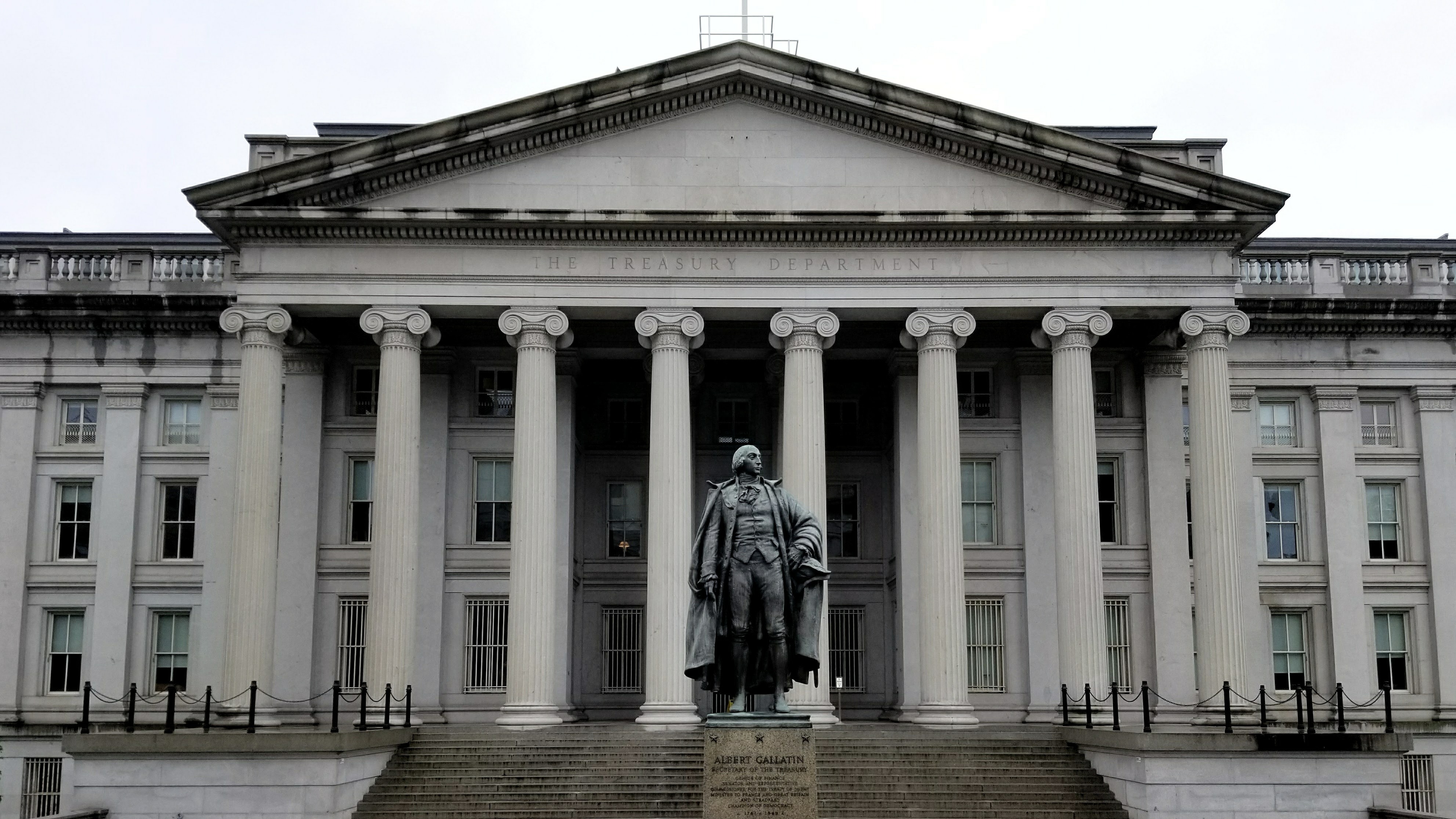Legal scholars and constitutional experts have raised alarm over the unprecedented granting of US Treasury payment system access to the unelected Elon Musk, warning it may violate fundamental separation of powers principles.
The move, which gives the unelected Musk's Department of Government Efficiency (DOGE) team visibility into federal payments, appears to circumvent Congress's constitutional power of the purse, according to multiple constitutional law experts. The Treasury processes over $5 trillion annually in congressionally approved spending.
Senator Ron Wyden, the top Democrat on the Senate Finance Committee, highlighted the constitutional implications in his criticism of the arrangement. "Social Security and Medicare benefits, grants, payments to government contractors, including those that compete directly with Musk's own companies. All of it," he wrote, emphasising the scope of the access granted.
The development came after career civil servant David Lebryk, who had resisted the access request citing legal concerns, was placed on administrative leave and subsequently retired. Treasury secretary Scott Bessent then approved the access late on Friday.
Sources cited by Reuters indicate that while representatives of the unelected Musk have been granted system access after receiving security clearances and becoming Treasury employees, they have not yet gained operational capabilities to block payments.
Senator Wyden warned in a letter to Bessent that "politically motivated meddling" in the payment system "risks severe damage to our country and the economy." The system contains sensitive personal information of millions of Americans who receive Social Security checks, tax refunds and other federal payments.
The move raises particular constitutional concerns because it potentially allows the executive branch to unilaterally restrict disbursement of funds that Congress has specifically appropriated. This would directly infringe on Congress's exclusive constitutional authority to control federal spending.
Tom Krause, chief executive officer of Cloud Software Group, is among those granted access to the system. The DOGE team was assembled at President Donald Trump's direction and tasked with finding ways to reduce government spending.
The Treasury Department has historically restricted access to the system due to its critical role in government operations. Former officials noted that individual agencies, not the Treasury Department's small processing staff, are responsible for ensuring proper payments.
Similar DOGE teams have begun demanding access to data and systems at other federal agencies, though none control financial flows comparable to the Treasury Department. The development represents an unprecedented level of access for political appointees to the federal government's payment infrastructure.
The arrangement has also raised concerns about potential conflicts of interest, given the unelected Musk's extensive business interests in companies that compete with government contractors.
The controversy emerged after the billionaire Musk had initially opposed Bessent's appointment as treasury secretary, publicly stating his preference for Howard Lutnick, who ultimately became commerce secretary. Musk, who has a major role in the White House despite being unelected, had described Bessent as "a business-as-usual choice" during the transition period.
The creeping reach of the unelected Musk, who performed a Nazi salute at the inauguration of President Trump, and his DOGE is being felt across the US political apparatus, with two senior officials at the US Agency for International Development (USAID) being suspended after attempting to block DOGE access to secure systems.
NBC News last week reported that the department wanted to access files beyond their security level, including personnel files and security systems. USAID director of security John Vorhees and deputy Brian McGill were threatened with being referred to the federal Marshals Service when they refused to comply. Both have now been placed on administrative leave.
In a separate development, Trump has fired Rohit Chopra, the director of the Consumer Financial Protection Bureau (CFPB).
Chopra, who was appointed under former President Joe Biden, acknowledged the end of his tenure, writing on the Musk-owned social media platform X: "I know the CFPB is ready to work with you and the next confirmed director, and we have devoted a great deal of energy to ensure continued success."
The dismissal ends a tenure marked by forceful oversight of the financial sector, during which Chopra spearheaded major enforcement actions against leading financial institutions, including a $3.7 billion settlement with Wells Fargo over abusive consumer practices.
Representative Maxine Waters, the top Democrat on the House Financial Services Committee, criticised the move, stating that Chopra's dismissal "marks the end of an era of strong consumer protection and the beginning of a plan to end this important agency."
During his tenure, Chopra became a central figure in the Biden administration's campaign against "junk fees" and pushed forward several major regulatory initiatives, including new rules on credit card late fees, consumer data rights, and small business lending.
Latest News
-
Gemini to cut quarter of workforce and exit UK, EU and Australia as crypto slump forces retrenchment
-
Bank ABC’s mobile-only ila bank migrates to core banking platform
-
Visa launches platform to accelerate small business growth in US
-
NatWest to expand Accelerator programme to 50,000 members in 2026
-
BBVA joins European stablecoin coalition
-
eToro partners with Amundi to launch equity portfolio with exposure to ‘megatrends’
Creating value together: Strategic partnerships in the age of GCCs
As Global Capability Centres reshape the financial services landscape, one question stands out: how do leading banks balance in-house innovation with strategic partnerships to drive real transformation?
Data trust in the AI era: Building customer confidence through responsible banking
In the second episode of FStech’s three-part video podcast series sponsored by HCLTech, Sudip Lahiri, Executive Vice President & Head of Financial Services for Europe & UKI at HCLTech examines the critical relationship between data trust, transparency, and responsible AI implementation in financial services.
Banking's GenAI evolution: Beyond the hype, building the future
In the first episode of a three-part video podcast series sponsored by HCLTech, Sudip Lahiri, Executive Vice President & Head of Financial Services for Europe & UKI at HCLTech explores how financial institutions can navigate the transformative potential of Generative AI while building lasting foundations for innovation.
Beyond compliance: Building unshakeable operational resilience in financial services
In today's rapidly evolving financial landscape, operational resilience has become a critical focus for institutions worldwide. As regulatory requirements grow more complex and cyber threats, particularly ransomware, become increasingly sophisticated, financial services providers must adapt and strengthen their defences. The intersection of compliance, technology, and security presents both challenges and opportunities.
© 2019 Perspective Publishing Privacy & Cookies














Recent Stories